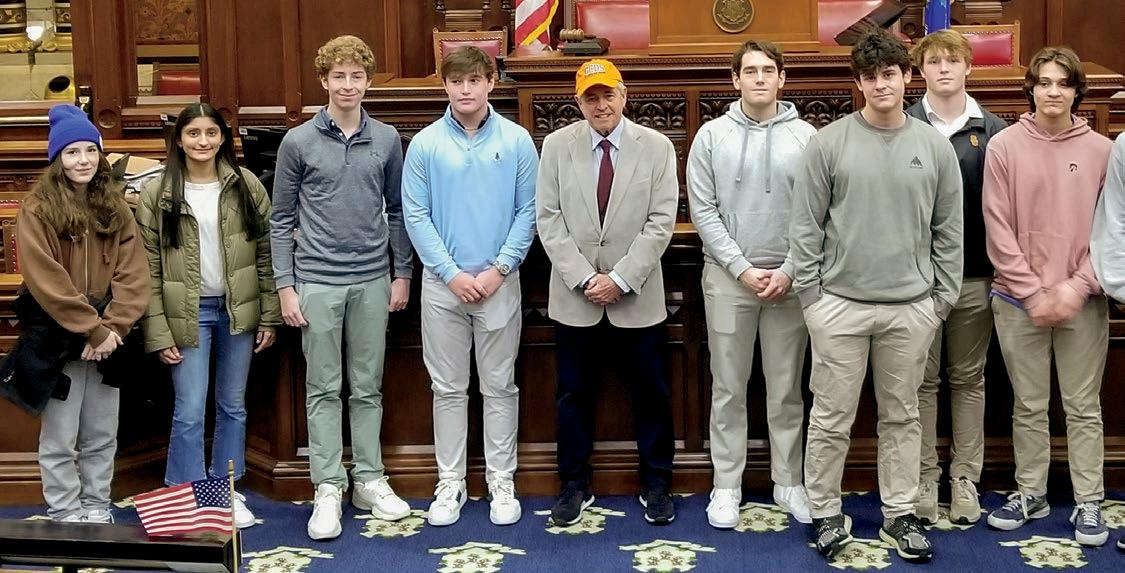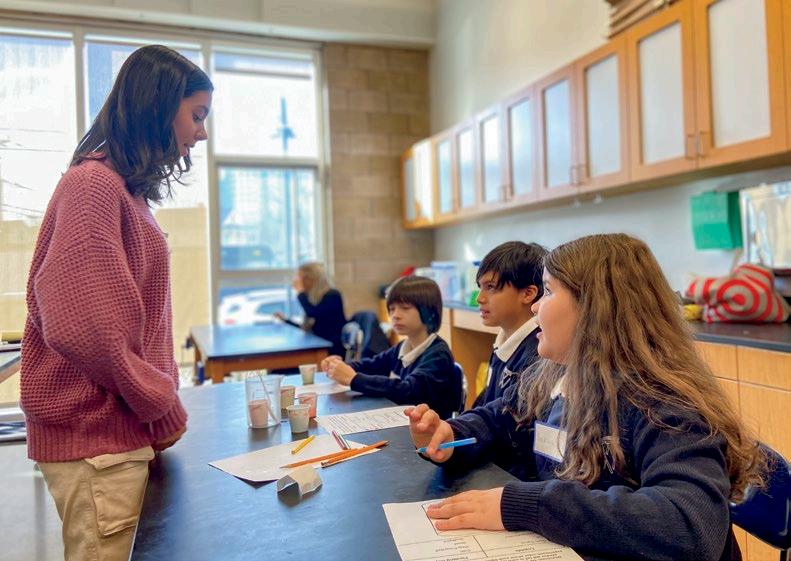
1 minute read
Is Real Life INTERSESSION
By Erik Johnke, Upper School Math Teacher and Intersession Coordinator

Intersession, which takes place over three weeks in January, provides a unique opportunity for our Upper School students not only because it is a break from “normal school.” The question I often ask myself as an educator is this: how do we design deep and joyful learning experiences? First, we look for authentic problems to solve in the real world. How do you start a business? What are the causes of hunger and homelessness? How can we integrate differently abled people into our community? How do we save coral reefs in South Florida? These are not problems that educators are inventing to make a curriculum more connected to real life. They are real life. Second, we study topics that are interdisciplinary. How do the geography, history, and built environment intersect to create a sense of place in New England? How do we study both the science and the artful engineering of our body, this amazing biological structure?

Intersession is also valuable because it often asks students to develop the skill of empathy. Whether we are listening to the stories of senior citizens, trying to understand what third graders need to learn science, or seeking to understand the experiences of residents of Jackson Heights in NYC, we are asking students to find a connection to people who are different from them; and then of course, they will also discover how those people are also profoundly similar to them.
Finally, we are asking students in Intersession to take risks and use their creativity. This is why we are not giving out traditional grades, which tend to inhibit risk-taking. While this is obvious in topics like NYC Arts Scene or playwriting, it also comes into play in STEM fields and in the humanities. Students are encouraged to say something bold, to make connections that are personal or intuitive and hard to “prove” analytically, to design something that may fail, and then have the chance to redesign it.

If we are successful, we engender a sense of play, but it is purposeful play. And learning is truly joyful.
Here’s a sampling of our Intersession offerings.
Project Typical
Studied
ONE-ACT PLAYS

Investigated food insecurity and homelessness and supported local organizations.














